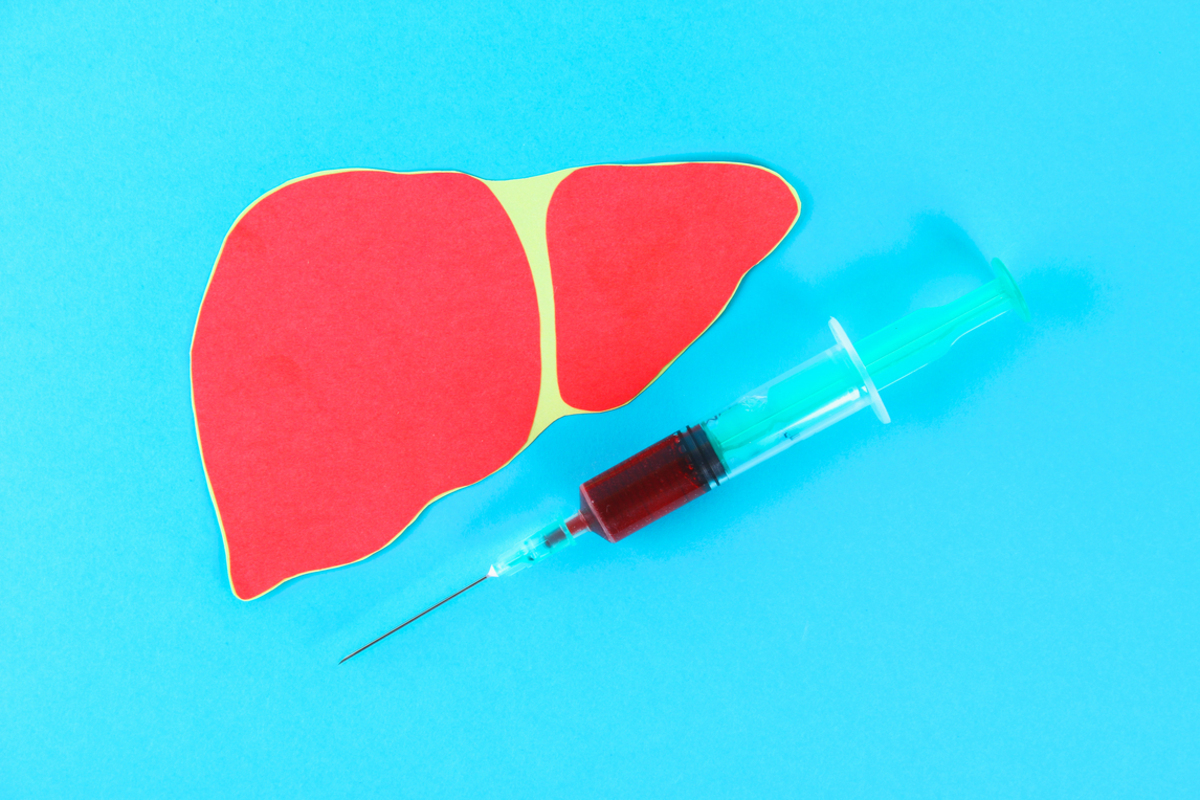Hepatitis C is, to put it bluntly, not something you want. Up to 25 percent of people who contract this virus will go on to spontaneously clear it out of their bodies, but the rest end up with chronic hepatitis C, which can in turn result in cirrhosis, liver cancer, and ultimately death. For an estimated 18,153 people in the US alone in 2016, hepatitis C became fatal.

What is hepatitis C?
Hepatitis is the inflammation of the liver. While this can be caused by a number of factors, several viral kinds of hepatitis exist, and hepatitis C is one of them. It causes a liver infection that can be spread from person to person, leading to symptoms like jaundice — in which the skin and eyes become yellow — along with fatigue, abdominal pain, nausea that can be accompanied by vomiting, a lack of appetite, diarrhea, and fever.
Hepatitis C becomes chronic in many cases, after which it can lead to liver scarring (cirrhosis), liver cancer, and death. It is, however, treatable — after as little as 12 weeks, an infected person can be free of hepatitis C. This doesn't mean they cannot become infected again, however. The key to eliminating hepatitis C is, of course, being aware you have it in the first place. For this reason, it's very important to get tested if you think you may have been exposed or if you are having symptoms that can point to hepatitis C.
How is hepatitis C transmitted?
Common routes to infection include:
- IV drug use — and people who stopped using drugs a long time ago may have hepatitis C without knowing it if they were never tested. Intranasal drugs such as cocaine can also pose a risk when sharing paraphernalia, as this can facilitate contact with infected blood as well.
- Receiving blood transfusions, organ transplants, or lotting factor concentrates, either in developed countries during or before the 1980s (before the hepatitis C virus was discovered), or in less developed countries even recently.
- Other contact with an infected person's blood, including by sharing razors, toothbrushes, or exposure to blood in unsanitary tattoo or piercing studios or dental or medical clinics. Healthcare workers have a particularly high risk of being exposed to hepatitis C. It is important to note that sexual intercourse with an infected person can also lead to hepatitis C, even though the virus isn't spread through sexual fluids. This is because of the potential of micro-lacerations that lead to contact with blood.
- A hepatitis C infection can also be passed on vertically, from mother to child, during childbirth.
How can you minimize your risk of hepatitis C?
It is clear, then, that some people have a higher risk than others of contracting hepatitis C. But can you really guarantee that you'll never give first aid to a bleeding person while you also happen to have a cut yourself? Probably not. Luckily, there's a vaccine — right? And you've probably already had it? Nope. Unfortunately, not yet. Research in this area is underway, but the fact that hepatitis C is a fast-mutating virus with multiple genotypes makes it harder to develop an effective vaccine.
Without the help of a vaccine, preventing hepatitis C is all on you — and, if you're at risk of being exposed to the virus in the course of your work, your employer. Steps you can take include:
- Not using IV drugs, or any kind of drugs at all for that matter. If you do use IV or intranasal drugs, never share or reuse equipment such as syringes.
- Ensure that any medical or dental clinic you attend is regulated and safe, and the same goes for tattoo and piercing studios. Don't get "scratcher" tattoos. Cosmetic salons, such as nail salons and barber shops should be subject to the same scrutiny.
- Practice safe sex. This doesn't just mean using a condom, which certainly helps, but also considering limiting your number of partners and familiarizing yourself with the health status of people you have relations with.
- Do not use razors, toothbrushes, or other personal care implements that have been used by others as well, if they could have blood on them.
- Practice proper hand hygiene, not only but especially if you know you have been in contact with blood.
- Healthcare workers — as well as those who work in other high-risk environments such as prisons — have their own preventative steps to take. If this is you, you'll already be familiar with them. If you're not a healthcare worker but you're curious, they include using gloves and safely disposing of biohazardous materials.


Your thoughts on this